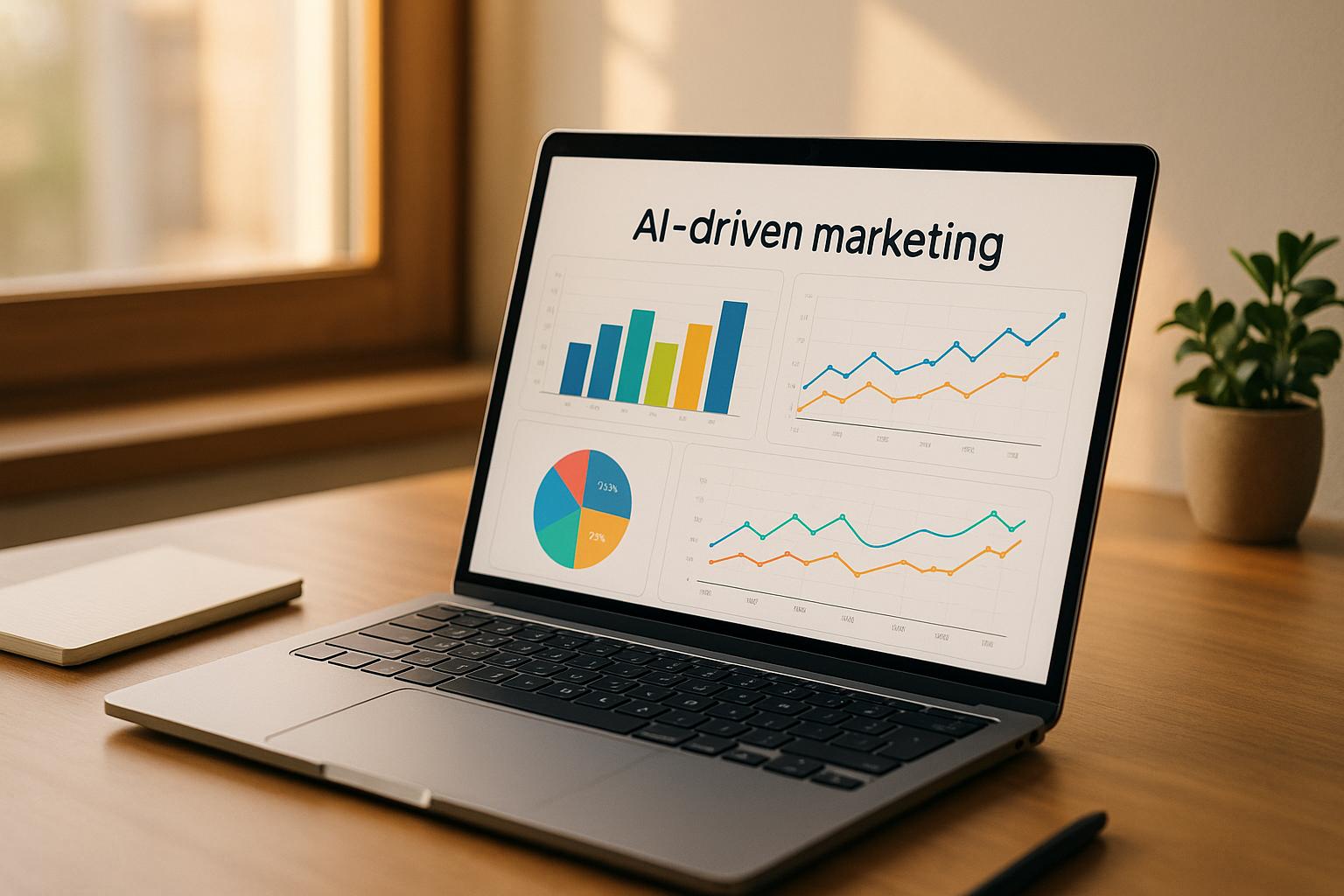The rise of artificial intelligence (AI) has brought transformative changes across industries, and the world of marketing is no exception. In a recent discussion on the Innovation Meets Leadership podcast, Nick Jane, founder of the AI-powered platform Content Hurricane, shared his insights on how AI is reshaping content creation and the broader implications for businesses. Drawing from his extensive experience leading companies to scale beyond $100 million in revenue, Nick offers a fresh perspective on how AI can be harnessed for efficient and meaningful content creation. Here’s an in-depth look at the conversation and its key takeaways for marketing professionals.
The Complexity of Modern Marketing
In today’s business landscape, marketing teams are overwhelmed with the myriad tools and platforms available to them. For many organizations, this complexity adds significant operational challenges, especially for teams managing limited resources. As Nick pointed out, "There’s so many tools out there to use, and it’s really difficult managing people."
This is where AI comes in - not just as another tool, but as a game-changer for reducing complexity and empowering professionals at all levels. AI no longer simply enhances human capabilities; in many cases, it outperforms humans at specific tasks. This shift calls for a fundamental rethinking of how marketing teams structure their efforts and allocate resources.
sbb-itb-9cd970b
AI as a Partner, Not Just a Tool
One of the core messages from the discussion is the evolving role of AI in the workplace. Historically, tools have been used to amplify human output. However, AI now has the potential to take over significant portions of the production process entirely. As Nick described, "AI can often create better quality work than most human beings can."
This doesn’t mean humans are obsolete - in fact, it creates an opportunity for marketers to step into more strategic roles. Instead of focusing on producing content, professionals can focus on guiding AI systems with clear objectives and purposeful direction. AI can take care of the "work of the work", while humans focus on creativity, strategy, and relationship-building.
The Role of Content Hurricane in the AI Revolution
Nick’s platform, Content Hurricane, is a prime example of how AI can directly tackle these challenges. Designed to produce expert-level blog content at scale, the platform exemplifies how AI can automate and optimize content marketing. Unlike generic AI-generated content, Content Hurricane focuses on creating thoughtful, targeted pieces tailored to a business’s specific needs.
Nick’s motivation for creating this platform stemmed from his prior role as CEO of a global B2B SaaS company, where he built a highly effective content marketing engine. He noticed two key trends:
- Content marketing outperformed paid advertising in ROI: Unlike paid ads that require constant investment, high-quality content continues to generate leads and build brand equity over time.
- Content has long-term impact: Evergreen content - such as blog posts and videos - delivers sustained value, creating a lasting brand presence.
With Content Hurricane, Nick aimed to democratize this process, enabling businesses of all sizes to produce world-class content without requiring a large, complex marketing team.
What This Means for Marketing Teams
The emergence of AI-driven tools like Content Hurricane has significant implications for how marketing departments operate. As Nick explained, the traditional emphasis on creating content within marketing teams is being replaced by more strategic functions:
1. Shift to Analytics-Driven Decision-Making
Marketers will need to focus more on analyzing the effectiveness of AI-generated work. By leveraging analytics and data, marketing teams can ensure that AI efforts are aligned with business goals and delivering measurable results.
2. Orchestration Over Execution
Future marketing teams will act as "architects", setting broad objectives and using AI to execute those plans. This requires a shift from hands-on production to guiding and orchestrating AI systems to achieve strategic goals.
3. Upskilling for the AI Era
Marketers must embrace continuous education to stay ahead of the curve. Learning how to effectively use AI, understanding its limitations, and mastering prompt engineering are critical for maximizing its potential.
As Nick put it, "People who learn to frame things in terms of an objective and then give the AI full latitude on how to achieve that objective are going to be a lot more successful."
Advice for Overwhelmed Professionals
For business leaders and marketers feeling inundated by the rapid pace of AI advancements, Nick offered actionable tips:
- Start with AI Itself: Begin by asking AI tools like ChatGPT for advice on how to integrate AI into your business. Even non-technical professionals can use these tools to discover practical use cases.
- Take a Course: Free online courses on platforms like Coursera and YouTube can provide foundational knowledge in AI, particularly in areas like prompt engineering. These courses are accessible and don’t require a technical background.
- Filter Out Noise: With so many tools and updates emerging, it’s crucial to focus on what’s relevant to your specific needs. Use tools like Google Alerts to stay informed about developments that matter to your business.
- Emotionally Regulate: Managing overwhelm starts with maintaining a calm and focused mindset. Whether through meditation, exercise, or other activities, finding ways to stay grounded is essential.
The Future of Marketing in an AI-Driven World
AI’s impact on marketing goes beyond tools - it’s reshaping the very fabric of what marketing departments do. As Nick noted, this evolution mirrors the shift from traditional creative-driven advertising to data-heavy digital marketing. Now, marketing teams are entering a new phase where they must balance strategic orchestration with analytics and creativity.
The key for organizations, especially those in the mid-market range, will be to embrace AI as a partner rather than a disruptor. By adopting the right tools and focusing on continuous education, businesses can unlock new levels of efficiency and creativity.
Key Takeaways
- AI is a transformative force in content creation, enabling businesses to produce expert-level content at scale.
- Traditional marketing functions like content production are being replaced by strategy, orchestration, and analytics.
- AI can outperform humans in many tasks, but it still requires purpose and guidance from skilled professionals.
- Organizations should prioritize evergreen content over paid advertising for better ROI and long-term impact.
- To stay competitive, marketers must upskill in areas like prompt engineering and analytics.
- Feeling overwhelmed is natural, but professionals can manage it by filtering relevant information and focusing on emotional regulation.
- Tools like Content Hurricane are ideal for businesses between $0.5M and $500M in revenue, providing scalable solutions tailored to specific needs.
Final Thoughts
The integration of AI into marketing is not just about speeding up processes - it’s about fundamentally changing how we think about content, creativity, and strategy. As Nick Jane emphasized, the world is moving forward with or without us, and those who embrace AI will find themselves at the forefront of innovation. It’s time for marketers to take their hands off the wheel and let AI handle the heavy lifting, while they focus on steering their organizations toward strategic growth and meaningful impact.
Source: "13. AI Redefines Content Creation at Scale with Nick Jain" - Innovation Meets Leadership, YouTube, Aug 10, 2025 - https://www.youtube.com/watch?v=y2IPJ_cFFEA
Use: Embedded for reference. Brief quotes used for commentary/review.



